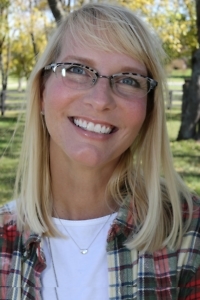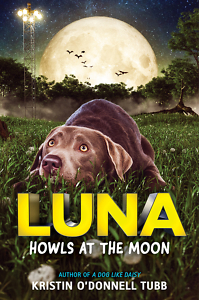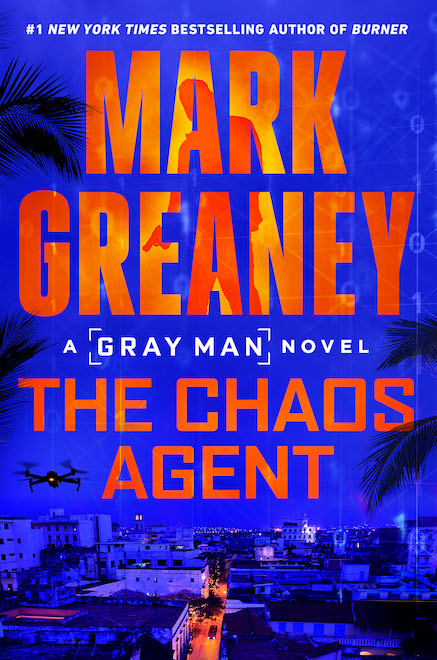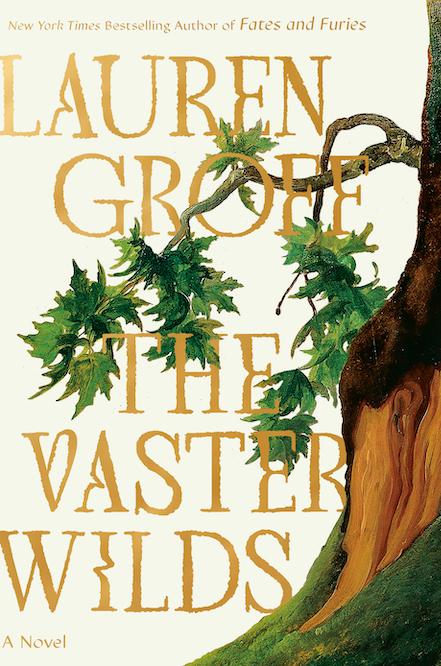Feeling No but Saying Yes
Troubled kids find a balm for pain in the love of a good dog
“Most of my clients don’t mind when I lick their tears away. Others want me to roll over and show them my belly,” says Luna, the protagonist of Kristin O’Donnell Tubb’s latest middle-grade novel. “It’s all about the client. Reading them and responding. … Each of us has a different hole that needs filling. My job as a therapy dog is to find the shape of that hole and fill it.” Luna Howls at the Moon is Tubb’s third book to feature a service dog as narrator, a charming device that works well in this case to illustrate the value of pairing therapy animals with troubled children.

Luna works with her owner, Tessa, in Austin, Texas, to provide a calming presence during therapy sessions with Tessa’s young patients: Caleb, a chess-obsessed germaphobe whose parents are embroiled in a messy divorce; Amelia, the victim of trauma so severe she has completely stopped speaking; Beatrice, who translates her grief into sudden fits of rage and violence; and Hector, whose weary and compliant attitude signals deep depression. When Tessa decides they could all benefit from group therapy, the results are predictably volatile, yet when Hector doesn’t show up for a session, the other three take it personally and set off to look for him and find out why. Torn between her duty to Tessa and her duty to the kids, whom she has come to love and see as her pack, Luna decides to follow them.
As Tessa and the kids’ parents search for them, the children pursue an eventful and sometimes harrowing quest that includes a visit to the Museum of the Weird, a bloody nose, a dangerous water crossing, a twisted ankle, dancing in the rain, thousands of bats, nighttime swimming, and run-ins with threatening older boys and even a wild animal — all with commentary that only Luna can hear, delivered by a haughty one-eyed stray cat with delusions of literary grandeur. Throughout this whirlwind of activity, Luna struggles to keep her head above water, sometimes literally, and take care of her kids. Along the way she is pleased to see that Caleb, Amelia, and even Bea begin to work together, let their walls down a little, and stand up for one another.
Luna is a splendid narrator — naïve yet insightful about the often-confusing behavior of humans. She dubs shoes “foot prisons,” swears “there’s nothing in the world a little toilet water can’t fix,” insists “shouting is like getting kicked with words,” and is quite eloquent on the canine system for measuring time: “Humans move through time by slicing it into seconds, minutes, hours. Dogs move through time in a rainbow of colors: days begin with pink, then yellow, then white, orange, lilac, blue, purple, black. Humans would see a lot more beauty in their world if they saw it through rainbows instead of timepieces.”
 Tubb sneaks in some truly lovely descriptive passages along the way. She writes, “Bats pull the sky toward them. They climb awkwardly, with great vigor and much flapping. Birds sail like sleek needles over silk, but bats earn every inch of height they gain,” and “It’s the part of summer when summer has lasted too long, blazed too bright, and you can’t remember what cold feels like. The leaves are crisping around their edges, but they haven’t yet whispered goodbye to their trees. Everything is thirsty.”
Tubb sneaks in some truly lovely descriptive passages along the way. She writes, “Bats pull the sky toward them. They climb awkwardly, with great vigor and much flapping. Birds sail like sleek needles over silk, but bats earn every inch of height they gain,” and “It’s the part of summer when summer has lasted too long, blazed too bright, and you can’t remember what cold feels like. The leaves are crisping around their edges, but they haven’t yet whispered goodbye to their trees. Everything is thirsty.”
In other words, there are treats galore for readers of Luna Howls at the Moon, as well as gentle messages about survival, friendship, loyalty, and especially courage. It’s not easy for Luna to sort through all of the messy human emotions swirling around her and figure out what her kids need most, but her desire to give them all she has is inspiring to the reader and to the characters themselves, who depend on her throughout the story for love and support.
In the end, Luna wisely declares, “Before today, I would’ve said courage is a paved road, solid and steady and sure. Easy to map. But now I know courage is simply feeling no but saying yes. And we need it all the time.” That goes for dogs and humans — and maybe even cats.

Tina Chambers has worked as a technical editor at an engineering firm and as an editorial assistant at Peachtree Publishers, where she worked on books by Erskine Caldwell, Will Campbell, and Ferrol Sams, to name a few. She lives in Chattanooga.


